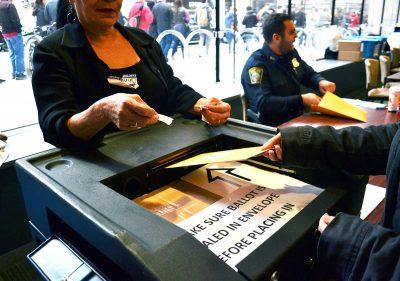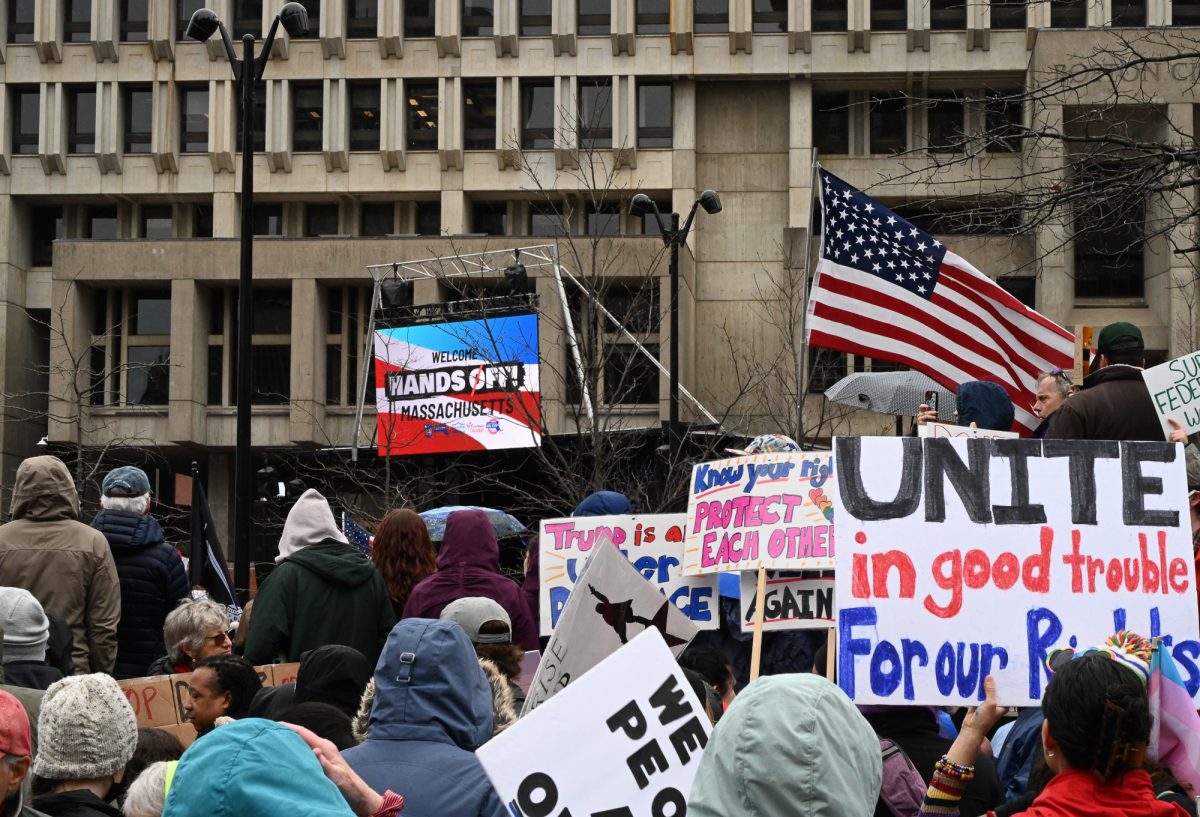
Acting Mayor Kim Janey posed a challenge to the 2020 U.S. Census count for the city of Boston over concerns of underrepresentation of college student, foreign-born and inmate residents via an Oct. 21 letter to the U.S. Census Bureau.
Research from the Boston Planning and Development Agency showed that the Census’s given population count of 675,647 people underreports significant portions of Boston’s university students, foreign-born residents, and those living in correctional facilities, according to an Oct. 22 press release.
“Every Boston resident deserves an accurate census count,” Janey was quoted saying in the press release. “This is required by our Constitution and is critical for Boston to receive its fair share of federal funding to support our most vulnerable populations and elected representation at all levels. An accurate census also ensures future planning accurately reflects the needs of our neighborhoods.”
The COVID-19 pandemic forced college students to evacuate from their campus housing in March 2020 before the April 1 Census date, the letter states. The Census Bureau instructed universities to report spring 2020 semester dorm numbers before the evacuation occurred. But regardless, Boston student populations were undercounted by about 5,000 individuals, according to Boston Department of Neighborhood Development data.
“We recognize the enormous challenges the Census Bureau faced conducting the 2020 Census during a pandemic, and we look forward to working together to obtain an accurate count for Boston,” Janey was quoted saying in the release.
The reported population of foreign-born residents was 191,208, or a little over a quarter of Boston’s population, according to the 2020 Boston Census.
The Mayor also expressed concerns in the letter that language barriers and government mistrust — “particularly with possibility of a citizenship question” — may have contributed to lower response rates on census tracts that contained large shares of foreign-born residents, underrepresenting the overall household population count.
An inaccurate Census count can spark issues within neighborhood planning operations and City funding, Director of Communications at the Boston Planning and Development Agency Bonnie McGilpin wrote in an email.
McGilpin also wrote that a precise Census is “critical” to maximize how much money the City gets from the federal government, as such funds are frequently used to serve the most vulnerable communities.
“The BPDA uses Census data for neighborhood planning and an accurate count is critical for the City to create plans that accommodate the present and current populations,” McGilpin wrote.
About 500 individuals in the two correctional facilities under Suffolk County Department of Corrections’ jurisdiction were not included in the Census count for the city, according to the release.
Michael Cox, executive director of prison abolition and LGBTQ+ rights group Black and Pink Massachusetts, said the underrepresentation in the census can affect the funding of correction facilities, removing money from the incarcerated people who need it.
“If you zoom out more, we can see that incarcerated voices are often erased,” he said. “Erasing the lives and experiences of incarcerated people is common, and this is just one more instance of that.”
Cox added the underrepresentation in the census shows how “time and again” incarcerated people are discounted from engaging in the body politic of Boston.
“We need to ensure that not only are incarcerated people counted in the census, but this is also about representation,” Cox said. “Right now there’s a big push to make sure that incarcerated people who are eligible to vote are connected with the resources to be able to do that.”
Campaign director for the National Council for Incarcerated and Formerly Incarcerated Women and Girls Kristina Mensik said that the 2020 Boston Census isn’t the only time incarcerated people are underrepresented — incarcerated populations are typically unable to use their political voice.
“[A recount] wouldn’t fix the problem of basically what we call prison gerrymandering, which is a system through which incarcerated people, by being counted in the place where they are incarcerated, effectively lose political representation,” she said. “[Janey’s] call for a recount will not by any means fix prison gerrymandering, but it will simply give a more accurate representation of the number of people who are typically incarcerated in Boston.”
Boston will provide the U.S. Census Bureau with administrative records from the correctional facilities and educational institutions, Janey said in the letter, recognizing the difficulty the pandemic and social distancing brought upon Census teams.
“We await the release of the formal guidelines so we can submit the necessary supporting evidence for the issues mentioned above,” the letter states. “Our desire to have a more accurate population count for Boston does not diminish our appreciation for the valuable resources that the Census Bureau provides.”






















































































































Alessandra Kellermann of BU Parents United • Oct 28, 2021 at 11:43 pm
Thanks for explaining this so clearly. It’s an important subject and Boston certainly is not the only city facing incorrect census numbers due to the pandemic.
Sharon • Oct 27, 2021 at 6:07 pm
Great piece and well written. I am former news journalist- well done Hailey Pitcher